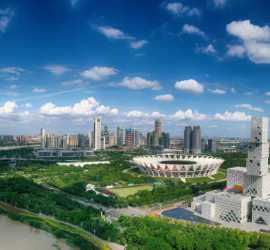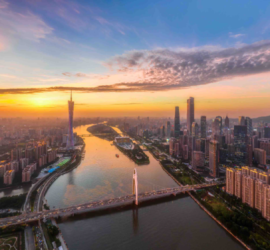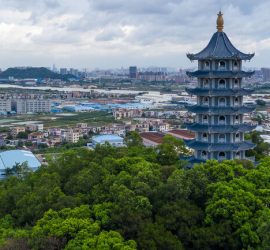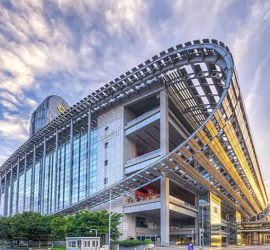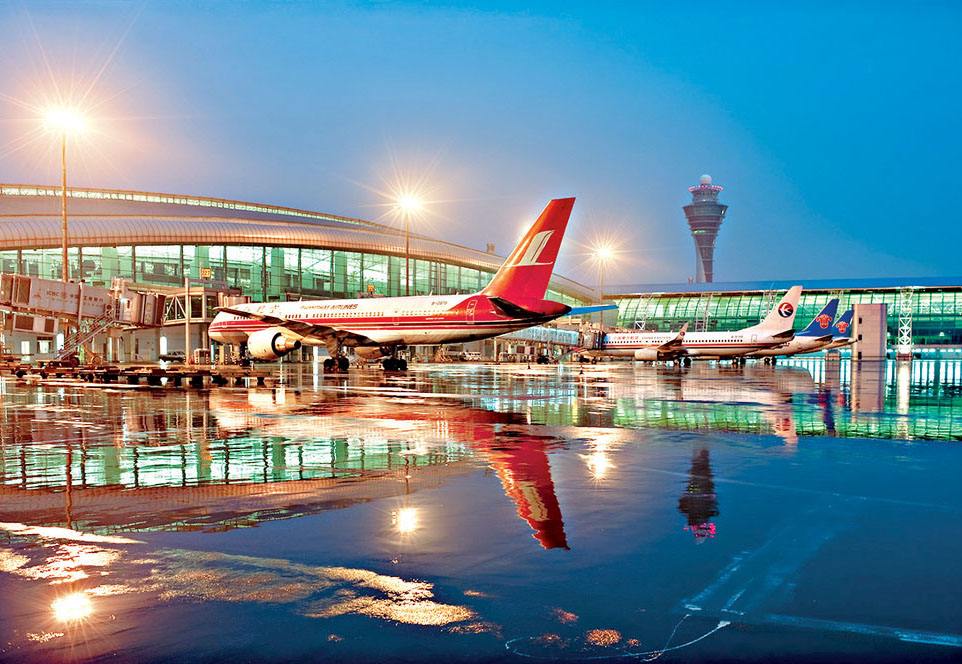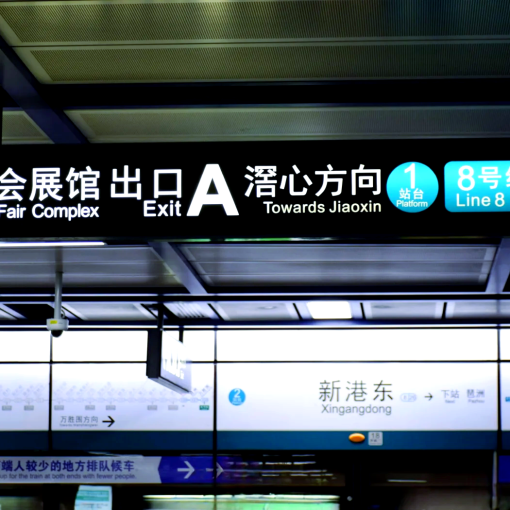
China 72 hour TWOV-Travelers holding US and many other passports are allowed to enter China for international transfers lasting up to 72 hours. Upon arrival, it is important to note that the standard immigration line for “Foreigners” should not be used. Instead, there is a separate line on the far right for “Special” passengers, although the signage does not mention TWOV (Transit Without Visa). Unfortunately, some CZ “Transfer” representatives may direct travelers to the longer “Foreigners” line.
China has resumed its 24-hour visa-free transit policy as of January 8th, 2023 after a three-year suspension due to the COVID-19 epidemic. This policy allows air, train, and ship passengers transiting through mainland China to stay for up to 24 hours without a visa before continuing on to a third country or region.
Most nationalities are eligible for the 24-hour TWOV in China, with some exceptions in certain airports. Passport holders from Afghanistan, Azerbaijan, Iran, Iraq, Kazakhstan, Kyrgyzstan, Malaysia, Oman, Pakistan, Saudi Arabia, Sri Lanka, Syria, Thailand, Turkey, Turkmenistan and Yemen require a visa when transiting through Xiamen. Syrian citizens transiting through Guangzhou are also not eligible for the 24-hour visa-free transit.
If your stay in Chinese mainland is less than 24 hours and you are heading to a third country or region afterwards then visas are not required.
China offers a 24-hour visa-free transit policy for travelers who are in transit to a third country or region. This means that you cannot depart for the country you just came from. The 24-hour period is measured from your scheduled arrival into China until your scheduled departure from China, and your transit time must not exceed 24 hours.
To be eligible for this policy, you must hold onward tickets to a third country or region, with Hong Kong, Macau, and Taiwan treated as separate regions. For example, if you are traveling from the USA to Hong Kong via Shanghai, you are eligible for the policy. However, if your journey is from New York to Beijing and then Hawaii, you are ineligible because both New York and Hawaii belong to the US.
This policy applies to three types of vehicles: trains, ferries, and airplanes. It allows multiple stops within Chinese mainland for most airports as long as you leave Chinese mainland within 24 hours. For instance, if you are traveling from the USA to the UK via Beijing and Guangzhou, you can make multiple stops within China as long as you leave within 24 hours.
You are required to remain within the transit area during your stay in China. If you want to leave the port, you can apply for a Temporary Stay Permit upon arrival. Additionally, your passport must be valid for at least six months from the date of intended arrival.
However, there are some port restrictions that travelers should be aware of. Passengers transiting through Fuzhou Changle Airport, Huangshan Tunxi Airport, Mudanjiang Hailang Airport or Yanji Chaoyangchuan Airport require a visa no matter how long their layover is. In Urumqi Diwopu International Airport, most travelers only enjoy visa-free transit for a maximum of two hours and are not allowed to leave the airport. Citizens from Afghanistan, Azerbaijan, Iran, Iraq, Kazakhstan, Kyrgyzstan, Malaysia, Nigeria, Oman, Pakistan, Saudi Arabia, Sri Lanka, Syria, Thailand, Turkey and Yemen must obtain a visa in advance.
If you have a layover in Guangzhou for less than 24 hours, you can apply for the 24-hour visa-free transit (TWOV) at Guangzhou Baiyun airport. This option is only available if you are entering Guangzhou by air and have a qualified travel itinerary.
To be eligible for the 24-hour TWOV, you must be on an eligible transit route. This means traveling from Country A to China to Country C, where A and C are different countries. Hong Kong, Macau, and Taiwan can be considered either A or C. For example, if you are traveling from the USA to Hong Kong via Beijing, this route qualifies for the 24-hour TWOV.
The 24-hour visa-free transit allows travelers to make multiple stops in China as long as they leave the country within 24 hours. For example, a route like USA-Beijing-Shanghai-South Korea would also be eligible.
To apply for the TWOV, you must have a passport that is valid for at least three months from the date of entry and an onward air, cruise or train ticket with a confirmed seat and date. If you need a visa for a third country or region on your itinerary, you must also have that visa.
If you want to leave the airport during your layover to claim luggage, take a connecting flight or do some sightseeing in the city, you can apply for a 24-hour visa-free entry permit. This will be stamped or stickered onto your passport to show your permitted stay length.
China offers a 24-hour visa-free transit policy for travelers who are in transit to a third country or region. This means that you cannot depart for the country you just came from. The 24-hour period is measured from your scheduled arrival into China until your scheduled departure from China, and your transit time must not exceed 24 hours.
To be eligible for this policy, you must hold onward tickets to a third country or region, with Hong Kong, Macau, and Taiwan treated as separate regions. For example, if you are traveling from the USA to Hong Kong via Shanghai, you are eligible for the policy. However, if your journey is from New York to Beijing and then Hawaii, you are ineligible because both New York and Hawaii belong to the US.
This policy applies to three types of vehicles: trains, ferries, and airplanes. It allows multiple stops within Chinese mainland for most airports as long as you leave Chinese mainland within 24 hours. For instance, if you are traveling from the USA to the UK via Beijing and Guangzhou, you can make multiple stops within China as long as you leave within 24 hours.
You are required to remain within the transit area during your stay in China. If you want to leave the port, you can apply for a Temporary Stay Permit upon arrival. Additionally, your passport must be valid for at least six months from the date of intended arrival.
However, there are some port restrictions that travelers should be aware of. Passengers transiting through Fuzhou Changle Airport, Huangshan Tunxi Airport, Mudanjiang Hailang Airport or Yanji Chaoyangchuan Airport require a visa no matter how long their layover is. In Urumqi Diwopu International Airport, most travelers only enjoy visa-free transit for a maximum of two hours and are not allowed to leave the airport. Citizens from Afghanistan, Azerbaijan, Iran, Iraq, Kazakhstan, Kyrgyzstan, Malaysia, Nigeria, Oman, Pakistan, Saudi Arabia, Sri Lanka, Syria, Thailand, Turkey and Yemen must obtain a visa in advance.
How to Apply for a 24-Hour Visa-Free Entry Permit in Four Easy Steps
If you’re planning a short layover in China, you may be eligible for a 24-hour visa-free entry permit. Here’s how to apply in four simple steps:
Step 1: Fill out an Arrival/Departure Card at the border inspection counter.
Step 2: Obtain a temporary entry permit stamp or sticker.
Step 3: Claim your luggage (if necessary).
Step 4: Go through customs.
To calculate your stopover time, use your scheduled arrival and departure times as starting and ending points.
Please note that passengers traveling with US and Canadian passports are not allowed to use multiple-stop transit within China if transiting through Weihai (WEH) or Wuhan (WUH). Transit including multiple stops within China is only permitted at Guangzhou if the first transit point is Beijing (PEK). Special provisions also apply to Urumqi (URC), where passengers are allowed to stay in transit for a maximum of two hours. Afterward, they must either continue to other domestic transit points by air or depart China within the next 22 hours.
All travelers in transit are required to go through immigration and customs, even if they do not intend to leave the airport. The only exception is for passengers arriving and departing from Beijing Capital International Airport, who can proceed directly to the sterile transit area without immigration checks.

